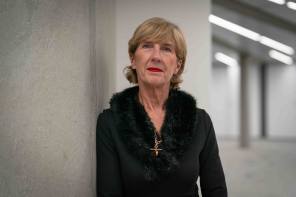

Equity release is starting to be seen as a legitimate asset in its own right, according to Nici Audhlam-Gardiner, commercial director at One Family.
She says: “We are starting to see equity release as an asset class, and investors will put it alongside other asset classes; they will look at yield, look at risk.
"Sometimes it offsets risk from other asset classes, as it can be counter cyclical.”
Such is the popularity of equity release as an asset that One Family, which was formed through the merger of Family Investments and Engage Mutual, has had numerous approaches from potential funders to create new products.
She says: “Generally, we’re seeing a lot of potential interest from different new players, ones that haven’t been in the market previously. There are quite a few people having explicit conversations with us, to see how they can get into the market.”
One Family offers a range of equity release products and mainly entered the market because it saw an opportunity for products that were not then available, namely variable rate products, with particular demand from people who did not want to keep the loan until they left their home but to pay it off in monthly instalments.
Taking out a mortgage
There are currently three instances where people want to take out an equity release mortgage: people who have interest-only mortgages and need a vehicle to pay off the capital at the end of the term; a second group for whom taking out a loan is a discretionary venture, and who want to enjoy their retirement, who might want to spend their money on home improvements; and a third group who are using the money to do some intergenerational financial planning, and use equity release to pass money on to the next generation, with help for a property deposit, for example.
Ms Audhlam-Gardiner says: “We see people in all of these groups, and that third group is small – about 10 per cent – but it’s interesting, with more Brexit uncertainty that discretionary group of people is getting a bit smaller.”
Controversial path
But equity release comes with some controversy, not least its past reputation, where people were stuck with a loan bigger than the value of the house.
While the no-negative-equity guarantee might have done much to repair the worst of the image it created, many advisers are wary about recommending it. This is because they feel ill-equipped to advise on it, and feel unsure about suggesting a client should give up some of the equity in their property, at a cost.
Ms Audhlam-Gardiner says: “I think advisers going into the market should think very carefully. There’s increasing flexibility in terms of the products available in the market. There are products that protect part of the equity.
“We’ve got some research that says the families of the customers have much less expectation of having an inheritance than they have historically, perhaps even more so than the individual who took out the product in the first place.
“As long as there’s a conversation, there’s nothing to say this shouldn't be the right outcome.
“It can change people’s lives.”
Ms Audhlam-Gardiner comes from a background with the big banks, having worked at both RBS and Santander, where she was in marketing at the former and director of mortgages at the latter. She also worked at Lloyds and spent four years at McKinsey.
She says: “This is a big contrast to RBS and Lloyds. It does go back to the mutual culture, that does have a really big impact on how you go about making decisions – we always think about the member when we make a decision.
“On a product basis it does make us more fleet of foot. In the larger banks, you can go through multiple layers to get things done. We have got good governance and it’s faster to get things done, and you can be more responsive.”
Credibility boost
But as more and more companies pile into the equity release market, will it become tougher to operate? Ms Audhlam-Gardiner notes that when Nationwide joined, the sector was given a big boost to its credibility.
She says: “It doesn’t feel like a competitive market, you’re not competing for the same market share. The cake is getting bigger.
“I think the market through the Equity Release Council is very aligned behind making sure we keep up standards, and think about how the market is evolving. We’re always looking at standards, making sure we’re keeping up with vulnerable customers.”
One Family also inherited child trust funds from its previous incarnation under Family Investments. She says: “It’s about what can we do to nudge people in the right way, and use this money in having the right conversation between parents and children. How do you help parents have those conversations and what can you do to the fund? It’s the difference between keeping the money in cash or investing it.”
Melanie Tringham is deputy features editor of Financial Adviser and FTAdviser.com



